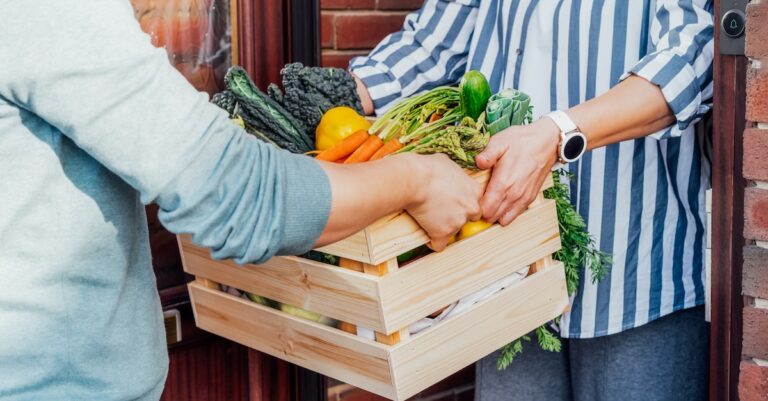From the mass exodus of skilled staff during the Covid pandemic to more recent geopolitical challenges – which have seen availability of food & drink falter as prices skyrocket by 12.2%, according to the latest Consumer Price Index – 2023 was certainly a difficult year for hotels, cafes and restaurants alike. Nigel Draper, Founder and Managing Director of Sorsco, explores the importance of sustainability in food and drink supply chains, and provides insight on how to enhance sustainability within a supply chain.
importance of sustainability in food and drink supply chains, and provides insight on how to enhance sustainability within a supply chain.
The ongoing cost-of-living crisis, which has seen many consumers reach for more budget-friendly options, has only added insult to injury for the many companies struggling for survival, with increased lead times, inventory management issues and production disruptions all having a part to play in widespread strife. In fact, 3gem research estimates that as many as 86% of UK hospitality operators will have to close within the next three years if they are unable to increase their current revenue, with half of these closures likely to happen within the next year.
“Inflation and rising food costs are affecting the entire supply chain, from suppliers, logistics companies, transportation, the front line such as restaurants, pubs and hotels, and wholesalers like us”, explains Phillip de Ternant, managing director at one of the nation’s largest wholesalers, Creed Foodservice, which is responsible for producing the April 2023 Plates to Profit report . “Combine this with consumers who are also having to review their expenditure – nearly half of operators told us that the number of bookings at their establishment have reduced – [and]the pressure mounts even more”.
Nigel Draper, Founder and Managing Director of Sorsco, experts in supply chain and procurement for the hospitality sector, explores the importance of sustainability in food and drink supply chains, and provides insight on how to enhance sustainability within a supply chain.
Sustainability as a resilience strategy
With such shocking statistics as food for thought, it’s clear that companies in the F&D industry must take drastic action if they are to survive and thrive in 2024 and beyond. One such strategy is to invest in a more sustainable supply chain, which will not only introduce significant cost savings through energy reductions and waste-limiting practices, but will also increase the potential for profits by boosting potential customer attraction and loyalty. Indeed, an independent study commissioned by SmartestEnergy recently revealed that 81% of people prefer to buy from sustainable brands, with 70% favouring companies that align with their values, according to World Economic Forum reports – so it literally pays to be green from your final output right down to your initial suppliers.
In fact, sustainability and decarbonisation are now firm priorities for all UK businesses, especially since the COP28 announced a worldwide commitment to transition away from fossil fuels. According to the EPA, over 90% of the greenhouse gasses produced by organisations can be attributed to supply chains, highlighting the need to tackle the problem from the ground up – with the F&D industry standing as no exception. In fact, in its 2015 Global Food System Emissions report, the EDGAR-FOOD database states that food-system emissions equate to 18 Gt of annual CO2 – that’s 34% of all global greenhouse gas emissions. Whilst agriculture and land use contributed the most, all other emissions were produced by supply-chain activities like retail, transport, consumption, fuel production, waste management, industrial processes and packing.
Packing manufacturer, Tetra Pak, has revealed that 24% of food and drink manufacturers, directors and business owners across the UK and Ireland are already on board, firmly believing that sustainability should remain a top priority. Nevertheless, 93% of senior-decision makers are planning to focus on other issues moving forward, highlighting an urgent need to take sustainability in the F&D supply chain more seriously.
Enhancing sustainability in your own food and drink supply chain
The steps to increased sustainability without decreased profit don’t need to be overwhelming. In fact, there are plenty of things hospitality businesses of all sizes can do to ensure their supply chain practices are more sustainable:
1. Consider supplier consolidation
By limiting the number of F&D suppliers you work with to a select few, you can easily reduce your carbon footprint by minimising the number of delivery journeys that need to be made.
Likewise, working with a smaller number of suppliers allows you to be more selective about partner ethics – something you can use to attract more customers in your ESG reporting – with better traceability and sustainability standards becoming possible when it comes to thinks like eco-friendly packaging, ethical production methods and sustainable sourcing. Remember, the more deliberate you can be about each stage in your supply-chain process, the more transparent you can be with your own customers, allowing you to foster a more sustainable future for the planet as you simultaneously stabilise your bottom line.
2. Local, seasonal sourcing
When it comes to reducing your supply-chain carbon footprint, few actions come close to choosing local, seasonal products. Not only does this support the regional economies that you’re part of, but it also minimises the environmental impact of any long-distance transportation that would otherwise be made to obtain the materials you need.
By prioritising local farmers and produce, you can likewise contribute to a more resilient and sustainable food eco-system overall, allowing you to overcome any persistent problems currently plaguing global supply chains. Take corn, for example. According to a 2023 report titled “Commodity risk is no picnic: how food and beverage supply chains can eat risk for lunch” published by Garner, products like corn – among other common foods like wheat, vegetable oils and dairy – are in short supply due to low global crop yields caused by climate disruptions like drought. In fact, one-third of the world’s corn is currently grown in drought-prone zones across the US, China, South America and Europe, with Spain experiencing a drought emergency across 30% of its agricultural regions this year.
By encouraging more local production and local sourcing, however, you can reduce any disruptions to your own supply chain, stopping any temporary closures or disadvantageous menu changes in their tracks whilst also encouraging greater crop diversity worldwide.
In cases where local sourcing is simply not possible, nearshoring – or choosing the closest vendor country to your borders – may be the next best solution when it comes to reducing your food miles. You might also consider adapting your menus to make them more sustainable, not only in terms of the planet but also in terms of limiting any potential supply-chain disruptions caused by factors that are out of your hands. Working with suppliers via a specialist procurement company can really help with this forward planning.
3. Traceability technology
Consumers are now more conscious of where their food comes from, which means supply-chain transparency is paramount. By investing in technologies that allow you to track the products and partners you work with throughout your supply chain, you can increase your own green accountability, providing more valuable information to your eco-conscious clientele, as well. This not only builds trust but also positions your businesses as a responsible, sustainable player on the market.
When used via blockchain or the internet of things (IoT), for example, enterprise resource planning (ERP) software, transportation management systems (TMS) and warehouse management systems (WMS) can all help to decarbonise your F&D supply chain, as can predictive analytics and many other kinds of sensor-based technologies. Of course, tracking also allows you to anticipate potential disruptions in the supply chain, limiting any financial impact you might otherwise have suffered, as well.
4. Waste not, want not
The Institution of Mechanical Engineers recently issued a report, titled “Global Food: Waste Not, Want Not”, in which it estimates that 50% of all the food produced worldwide is thrown away. This equates to a staggering two billion tonnes of food each year, with the UK throwing away over 30% of its vegetable crops before they are even harvested, given that they fail to meet retailers’ overly exacting physical appearance standards. By making more of a conscious effort to prevent such needless food waste, UK companies could easily cut their supply-chain carbon emissions by more than half – saving themselves a significant amount of money in the process.
It’s not just about reducing natural food waste either. Companies can likewise focus on reducing energy expenditure, water consumption and packaging materials – opting for compostable or recyclable options wherever possible – thus making their current activities more sustainable in terms of both the planet and the economic future.
5. A circular economy
This brings us to our final point: aiming to create a circular economy – whereby as many of the products, materials and resources you use come back to you or your chosen vendors in some way, in order to be reused or recycled. This helps to reduce landfill waste more significantly than any other action and is something that 49% of all CEOs are already looking into, according to Accenture research – highlighting the need to adopt similar practices if you are to keep up with the competition.
A recipe for resilience
Sustainability is the strategic answer to both global warming and the imminent threat of hospitality closures. From supplier consolidation to local sourcing and a circular economy, there are plenty of practices you can adopt to reduce the environmental impact of your F&D supply chain as you simultaneously strengthen your own financial resilience. You might even consider working with intelligent procurement services like Sorsco to help you make more sustainable sourcing and supply-chain decisions, ensuring that the future remains bright for your company, the planet and the people you serve.

